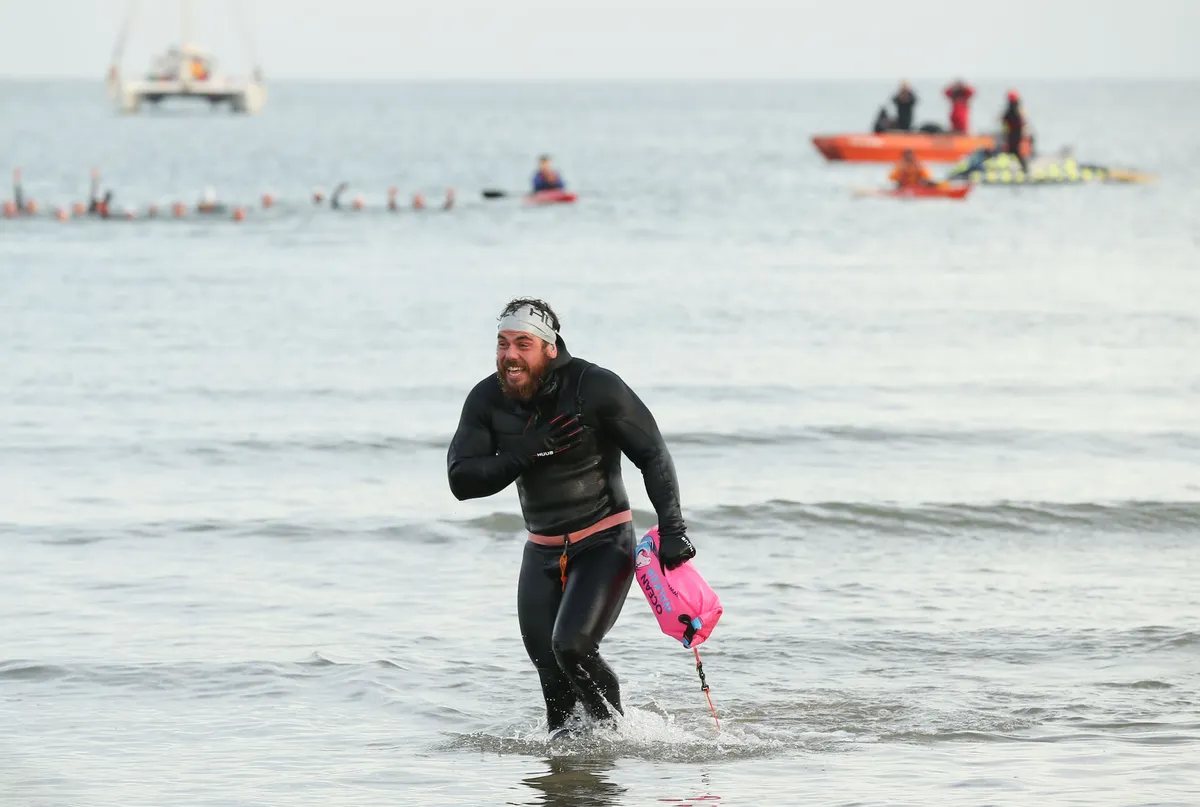We’re big fans of Ross Edgley, not only the athlete Edgley and his exploits, including becoming the first person to swim around Great Britain, but also the author Edgley.
He’s as adept at assimilating technical concepts into easy-to-action advice as he is swimming with a tree across the Caribbean Sea (yes, Edgley is not normal!).
His latest book, Blueprint, shows you how to bulletproof your mind and body for optimum performance and will appeal to triathletes of all levels.
Like his previous best-sellers, The World’s Fittest Book and The Art of Resilience, the advice is built on his own athletic experience and his laser-sharp knowledge of sport science. Here, Edgley explains how to sleep better, highlighting the importance of recovery with his six ways to sleep your way to stronger training and faster racing…
1. Morning sun sets your body clock
Studies show morning sunlight reinforces your natural circadian rhythm (your body clock). By signalling to your brain that bedtime is over, it’s time to suppress melatonin, increase cortisol production and attack the day.
Researchers claim, ‘These hormones can be considered to be stable markers of the circadian time structure and therefore useful tools to validate rhythms’ synchronisation of human subjects.’
2. Learn to digital detox
In the modern digital age, experts stress the need to manage the amount of light you’re pumping into your eyes from electronic devices in the evening.
This is because studies show, ‘Modern light exposure patterns contribute to late sleep schedules and disrupt sleep and circadian clocks’ by delaying the release of melatonin.
3. Reduce caffeine intake
Research reveals there is a strong association between daily intake of caffeine and reduced sleep quality and quantity, since consumption causes a reduction in 6-sulfatoxymelatonin (main metabolite of melatonin), which interferes with our natural sleep– wake cycle.
Obviously effects vary from person to person, but studies show even if taken six hours before bed, a small cup of coffee can have disruptive effects on sleep.
4. Train to sleep

In 2007, a study published in the Journal of Neuroscience wrote, ‘The present suggestion is that depletion of cerebral energy stores and accumulation of the sleep-promoting substance adenosine after exercise may play a key role in homeostatic sleep regulation.’
Put simply, train like an animal during the day and sleep like a baby at night. Also, studies reveal that the type of exercise doesn’t even matter; everything from strength training to yoga was shown to have sleep-enhancing benefits.
5. Find 65°F (18.3°C)
Researchers found, ‘The thermal environment (temperature of the room) is one of the most important factors that can affect sleep.’ This has been supported by numerous studies over the years, but a large-scale analysis of 765,000 survey respondents found that most people experience abnormal sleeping patterns during the hotter summer months.
This is why scientists claim the perfect room temperature is between 60°F and 67°F (15.6°C and 19.4°C). This is because your body’s internal temperature changes during a 24-hour period with your circadian rhythm, but if the room temperature is too hot or cold, it may cause circadian rhythm malfunctions and therefore disrupt sleep.
6. Supplement your sleep
This final tip could be the proverbial cherry on top of your night-time routine. This is because cherries are one food known to be naturally high in melatonin, which research published in the European Journal of Nutrition found increases melatonin levels and serotonin levels which in turn improved the quality and quantity of their sleep.
Ross Edgley’s Blueprint is published by Harper Collins and is available now for £20.00 (RRP).
